Tehran Confirms Iraq Removed 27 Iranian Universities From Certification
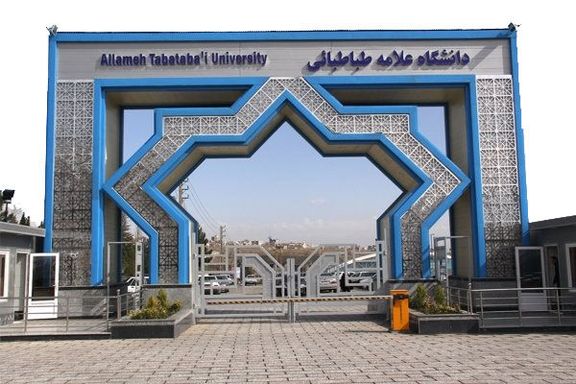
Iran has confirmed that the Iraqi Ministry of Higher Education has removed 27 Iranian universities from its list of recognized universities.

Iran has confirmed that the Iraqi Ministry of Higher Education has removed 27 Iranian universities from its list of recognized universities.
Hashem Dadashpur, a deputy of the Ministry of Science, Research and Technology, said on Saturday that "In this academic year, Iraq has adopted strict conditions in its evaluation system."
The list is for Iraqi students who want to continue their studies abroad on government’s scholarships.
He explained that the Iraqi Ministry of Higher Education used Times Higher Education World University Rankings, QS World University Rankings, and Shanghai Academic Ranking of World Universities to evaluate foreign universities, which led to the omission of some Iranian institutions.
Dadashpur said the decision is not specifically related to Iranian universities and many universities from Belarus, Jordan and Lebanon are also removed from the list, noting that 14 Iranian universities are still in the list.
According to him, currently 56,000 Iraqi students are studying in Iranian universities.
Several of the Iranian universities are institutions established after the 1979 revolution to promote Shiite Islamic ideology.
In recent years, numerous reports have been published about the decline in the quality of education in Iranian universities, which has led to the migration of elite students from the country.
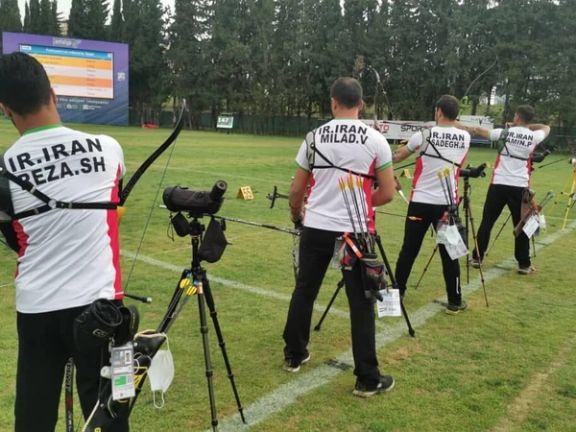
Iran’s Archery Federation announced on Saturday that the United States did not issue visas for the national team members, and they lost the chance to participate in the World Games.
The 2022 World Games, an international multi-sport event meant for disciplines or categories that were not contested in the Olympic Games, was inaugurated in Birmingham, Alabama, on July 7.
The president of the Iranian federation, Gholamreza Shabanibahar, said Iran plans to voice its official protest to the World Archery Federation in the coming days.
Last week, the Iranian karate team was also denied visas to enter the US for the World Games. Fox News claimed that the national team has direct links to the Revolutionary Guard (IRGC) that is designated as a terrorist organization by Washington. The report said opponents of the regime and Gold Star families – a name given to immediate family members of the killed US service members -- called for an immediate ban.
Beverly Wolfer, sister of Major Stuart Adam Wolfer, who was killed in Iraq on April 6, 2008 by an Iranian-backed terror cell, said, “Allowing Iranian sports teams to compete in the US legitimizes a terrorist regime by flying its flag and playing its anthem on American soil.”
The captain of the karate team, Zabihollah Poursheib, told ISNA, "America did not issue visas for various teams, including wrestling, which shows that the Americans mix non-sports and political issues with sports."
The Islamic Republic, especially since Ebrahim Raisi took office, has appointed several former IRGC officers as top managers of government organizations such as sports federations.
In May, Canada Soccer cancelled a controversial friendly match with Iran’s national team after many Iranians objected to the visit of Iranian football officials.
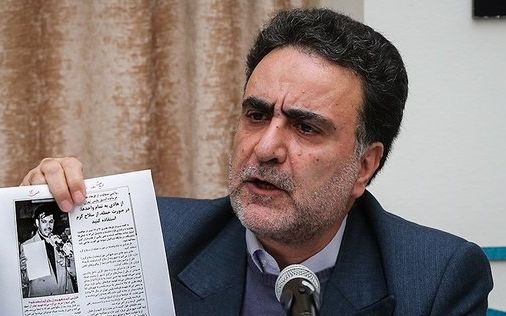
Iran’s security forces have arrested a leading ‘reformist’ politician, Mostafa Tajzadeh on Friday and two prominent film directors critical of the regime.
In short reports, websites affiliated with the Revolutionary Guard said Tajzadeh was arrested on charges of “assembly and collusion against state security,” an accusation routinely used to jail all opponents and even those who are considered generally loyal to the principle of having an Islamic Republic.
Tajzadeh was deputy-interior minister during the presidency of reformist Mohammad Khatami in 2000s and had become an outspoken critic of policies pursued by dominating hardliners in Iran in recent years. He spent seven years in prison after months of nationwide protests to the results of 2009 presidential elections reinstating Mahmoud Ahmadinejad in a second term.
But in the past three years, Tajzadeh became increasingly vocal against the hardliners and even Supreme Leader Ali Khamenei. From his public comments it was apparent that he remained loyal to the concept of an Islamic Republic but otherwise criticized almost every aspect of the political system Khamenei has nurtured.
In recent days, Tajzadeh vehemently opposed the increasingly harsh methods to enforce hijab in his tweets. In March he opposed the government's policy of not condemning Russia’s invasion of Ukraine.
"Iranians still remember the bitter experience of Saddam Hussain's war (1980s) and his aggression against Iran, a neighboring country. For this, Iranians condemn the military attack" on Ukraine, he tweeted in March.
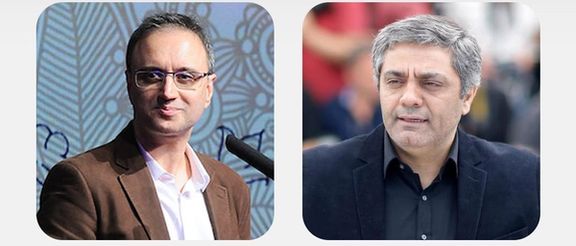
Late Friday, the government’s official news website IRNA announced that two film directors, Mohammad Rasoulof and Mostafa Alehahmad have also been arrested. They were signatories of a collective statement titles “Lay down the gun” issued by more than 100 film industry personalities in the end of May calling on military and security forces who “have become tools for cracking down on the people,” not to suppress protesters who simply want their basic rights.
Dozens of Rasoulof’s films have won international awards and he is known as an independent filmmaker, who spent one year in prison for filming without a permit from the censors of Iran’s clerical regime.
After the public statement by filmmakers, Rasoulof wrote on his Instagram page that security forces were calling signatories asking them to renounce their signatures or give interviews to state media discrediting the statement.
Some Iranian activists tweeted on Friday and Saturday that Tajzadeh’s arrest puts an end to any notion that even loyal reformists would be allowed to exist in Iran.
Mehdi Nasiri, a regime insider who was once the editor of the conservative flagship, Kayhan Daily tweeted, “Mostafa Tajzadeh’s arrest…who was still defending reforms and opposing political violence for regime change, only means that the rulers are not able to discern their own interests, or those of the people and Iran.”
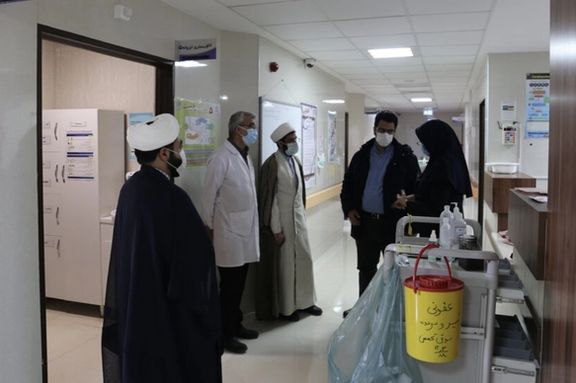
The so-called morality police have started patrolling medical and academic centers in Iran’s northeastern city of Mashhad to enforce compliance with the Islamic dress code (hijab).
In a statement on Thursday, Mashhad University of Medical Sciences confirmed the presence of hijab police and teams from what the Islamic Republic calls the ‘Enjoining right and forbidding vice headquarters’ in hospitals to inspect the dress codes of the personnel and interns in medical centers.
Social media users earlier reported the presence of such teams in various wards of hospitals and medical centers, with some reports of pressures on hospitals to separate male and female patients admitted to the ICU.
Esmail Rahmani, deputy public prosecutor of the religious city of Mashhad has recently ordered the municipality to prevent ‘bad-hijab’ women from using public transportation including the metro and threatened to take legal action against such officials for failing to do so. He has also ordered the governor to ban services in banks and government offices to ‘bad-hijab’ women.
Iran’s hardliner president has recently ordered all government entities to strictly implement a “chastity and hijab” law after weeks of stricter measures on the streets.
Harsher than usual enforcement of hijab this summer has raised protests from many in Iran including some moderate religious and political figures.
No one knows if the enforcement of strict religious rules is related to the authorities attempt to show force, but some citizens see the effort as a scheme to pit people against one another.
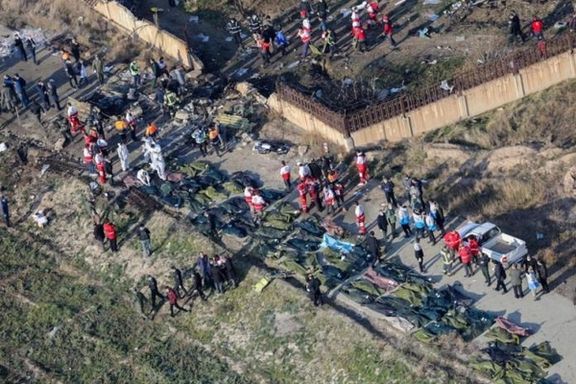
Ukraine International Airlines has sued the Islamic Republic and its Revolutionary Guard for the downing of its Flight PS752, which was hit by anti-air missiles in 2020.
In the official complaint filed in January with the Ontario Superior Court of Justice and recently obtained by Iran International, the airline requested $750 million in compensation for the passengers and crew and $250 million in damages.
“The plaintiff claims damages for the loss of life and baggage of passengers and crew and derivative claims of surviving family members in the amount of $750 million and damages for and arising from the loss of its aircraft in the amount of $250 million,” the document read.
In June, Canada announced that it has notified Iran of Ontario's Superior Court of Justice’s ruling that IRGC’s downing of the plane was intentional. In the case -- titled Zarei et al vs Islamic Republic of Iran et al – some family members filed a civil lawsuit against Iran and senior officials they believe were to blame for the incident.
The airliner was shot down by two air-defense missiles fired by the IRGC as it took off from Tehran’s Imam Khomeini International Airport. Hours earlier, the IRGC had fired more than a dozen missiles at Iraqi bases hosting US troops in retaliation for the killing of the IRGC Qods Force Commander Ghasem Soleimani who was targeted by a US drone strike just five days earlier. All 176 passengers and crew, including 63 Canadians and 10 from Sweden, as well as 82 Iranian citizens on the plane died in the disaster.

The Islamic Republic’s anti-riot police forces have been deployed to crack down on a protest rally by workers of a copper mine in northwestern Iran.
According to a video sent to Iran International, anti-riot forces are seen attacking the workers of the Sungun (Soungoun) copper mine complex, located in Varzaqan (Varzaghan) county in province of East Azarbaijan, who have been on strike for at least three days demanding better work conditions and salaries.
More than 1,200 workers of the mine -- the largest open-cast copper mine in Iran -- spent the last three nights inside their tents or cars at the site of the mining complex.
During the past few days several of the copper mine workers were arrested by security forces but the clampdown had not been so ferocious until Thursday.
Iran’s runaway inflation, currently at an annual rate of 55 percent, has impoverished a vast majority of the population and is seen as the result of a nuclear program that has brought on international and US sanctions for the past 15 years, crippling the economy.
With food prices rising faster after four years of United States’ ‘maximum pressure’ sanctions, Iranian workers and retirees have been holding regular protests or strikes to demand higher salaries. Last month, Iran’s currency fell to a historic low of 333,000 rials to the US dollar in June.
During the past weeks, widespread protests by workers,shop owners, and teachers protesting against poverty, inflation, and low wages, have been met with heavy-handed crackdown and numerous arrests by the security forces.